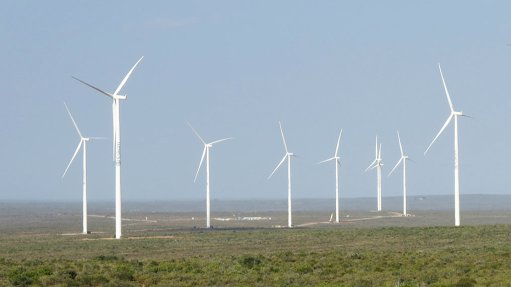Levelling up & trickling down
There was a time when we were overrun by a tsunami of acronyms. Now our world is abuzz and aflood with terms whose meanings are rarely, if ever, explained. These terms tend to morph into buzzwords that are quite casually introduced into everyday conversation.
Take the two buzzwords: levelling up and trickling down. Do you know what they mean? Or rather: Do you really know what they mean? ‘Levelling up’, according to the Levelling Up Campaign (www.levellingup.campaign.gov.uk), has several meanings, these being: boosting productivity, pay, jobs and living standards by growing the private sector, especially in places where they are lagging; spreading opportunities and improving public services, especially in places where they are weakest; restoring a sense of community, local pride and belonging, especially in places where they have been lost; and empowering local leaders and communities, especially in places lacking local agency.
In the UK, there is even a Levelling Up White Paper, which argues that “success in levelling up is about growing the economic pie, everywhere and for everyone, not re-slicing it”.
‘Trickle-down’, in the context of trickle-down economics, is a colloquial term for supply-side economic policies. Supply-side economics is a macroeconomic theory that contends that economic growth can be most effectively fostered by lowering taxes, decreasing regulation and allowing free trade.
I remain astounded at how quickly words tend to lose their true impact and their actual meaning. Take ‘trickle’ in the context of trickle- down economics, for instance. When it is mentioned there is a real sense of excitement, which the late former US President, Ronald Reagan, best encapsulated when he had Americans believe that wealth would trickle down. Yes, not flood down but rather trickle down. A trickle is considered a small flow. As George Leef argued in a Forbes magazine opinion piece published in December 2013, titled ‘Trickle-Down Economics: The most destructive phrase of all Time’: “In a free society, wealth doesn’t trickle down, or up, or sideways. It is earned.”
So, quite unsurprisingly, trickle-down economics simply does not work. In a July 2003 article published on www.faireconomy.org, Mehrun Etebari offers four reasons why trickle-down does not work. The first is that cutting the top tax rate does not lead to economic growth. Secondly, cutting the top tax rate does not lead to income growth. Thirdly, cutting the top tax rate does not lead to wage growth. Finally, cutting the top tax rate does not lead to job creation.
This might well be something that the South African Revenue Service should be reminded of should it be considering amending its top tax rates. If it wants real-life experience, then it should look no further than the ‘fiscal event’ of the UK Chancellor of the Exchequer (essentially the Finance Minister), which was really a ‘mini-budget’ delivered on September 23. Don’t you just love the word play! Oh how I long for the days when a spade was called a spade, and not a gardening implement.
Since both levelling up and trickle-down economics are aimed at attaining and sustaining economic growth, the obvious question to ask is: What are the main drivers, or sources, of economic growth? There are essentially two main sources of economic growth: growth in the size of the workforce and growth in the productivity of that workforce.
So, how is productivity attained, and sustained? Quite simply by, among others, investment in plant and equipment, and innovation, as well as improvements in supply- chain logistics, education, enterprise and competition.
The heading of this piece is reminiscent of the 1989 Aerosmith hit song, Love in an Elevator, the chorus of which is: “Love in an elevator; Livin’ it up when I’m goin’ down; Love in an elevator; Lovin’ it up ʻtil I hit the ground”. This evokes the question: Which policy would individually result in an economy hitting the ground the fastest, and which would make it hit the ground the hardest? Levelling up, or trickle-down economics?
Article Enquiry
Email Article
Save Article
Feedback
To advertise email advertising@creamermedia.co.za or click here
Announcements
What's On
Subscribe to improve your user experience...
Option 1 (equivalent of R125 a month):
Receive a weekly copy of Creamer Media's Engineering News & Mining Weekly magazine
(print copy for those in South Africa and e-magazine for those outside of South Africa)
Receive daily email newsletters
Access to full search results
Access archive of magazine back copies
Access to Projects in Progress
Access to ONE Research Report of your choice in PDF format
Option 2 (equivalent of R375 a month):
All benefits from Option 1
PLUS
Access to Creamer Media's Research Channel Africa for ALL Research Reports, in PDF format, on various industrial and mining sectors
including Electricity; Water; Energy Transition; Hydrogen; Roads, Rail and Ports; Coal; Gold; Platinum; Battery Metals; etc.
Already a subscriber?
Forgotten your password?
Receive weekly copy of Creamer Media's Engineering News & Mining Weekly magazine (print copy for those in South Africa and e-magazine for those outside of South Africa)
➕
Recieve daily email newsletters
➕
Access to full search results
➕
Access archive of magazine back copies
➕
Access to Projects in Progress
➕
Access to ONE Research Report of your choice in PDF format
RESEARCH CHANNEL AFRICA
R4500 (equivalent of R375 a month)
SUBSCRIBEAll benefits from Option 1
➕
Access to Creamer Media's Research Channel Africa for ALL Research Reports on various industrial and mining sectors, in PDF format, including on:
Electricity
➕
Water
➕
Energy Transition
➕
Hydrogen
➕
Roads, Rail and Ports
➕
Coal
➕
Gold
➕
Platinum
➕
Battery Metals
➕
etc.
Receive all benefits from Option 1 or Option 2 delivered to numerous people at your company
➕
Multiple User names and Passwords for simultaneous log-ins
➕
Intranet integration access to all in your organisation

















